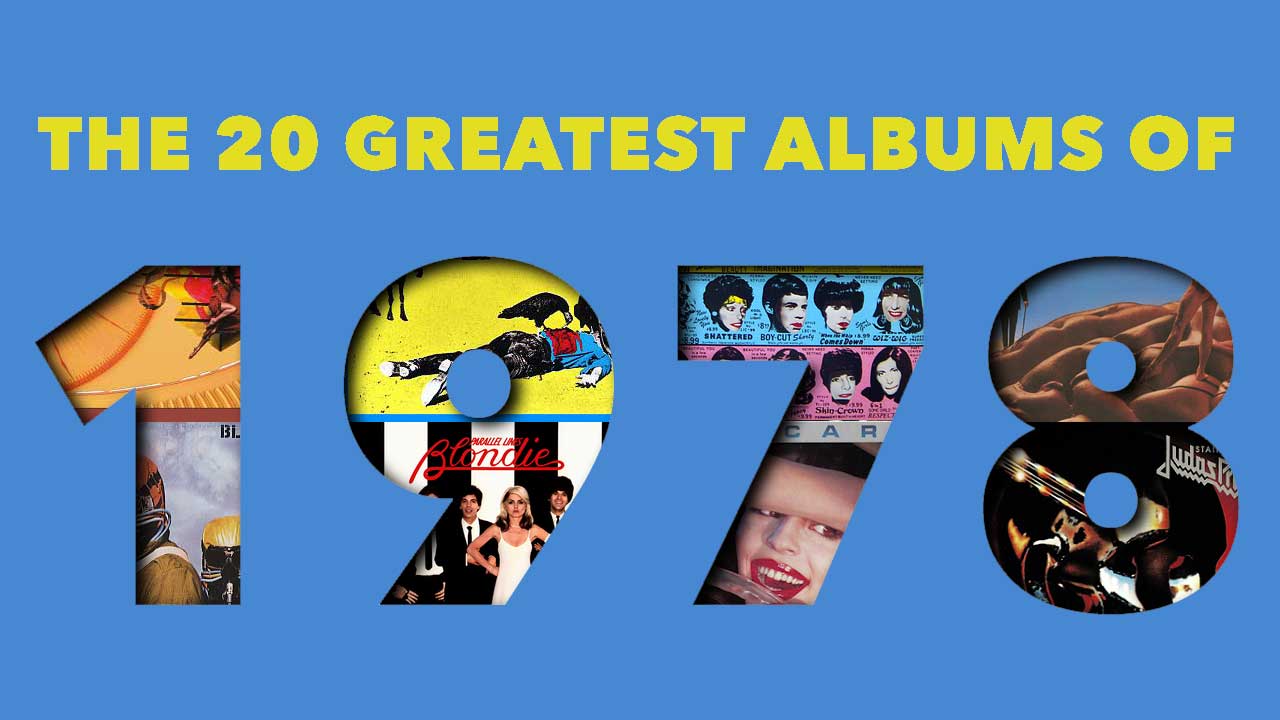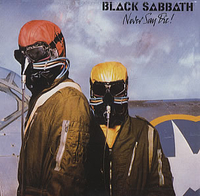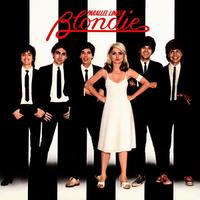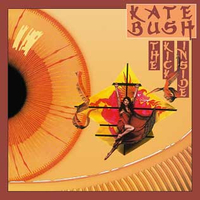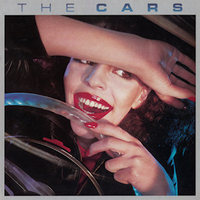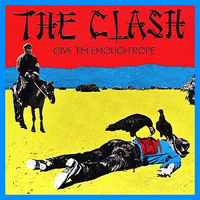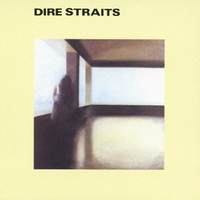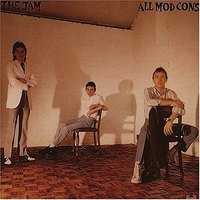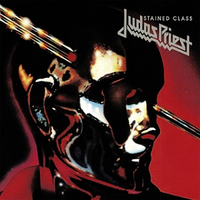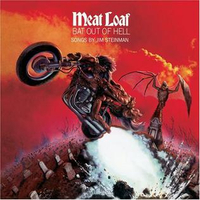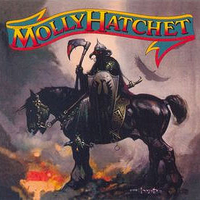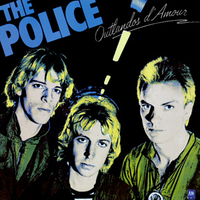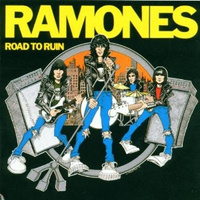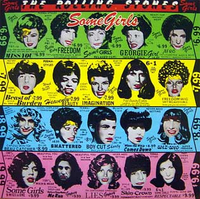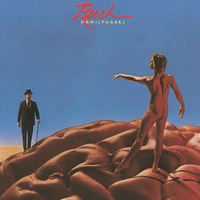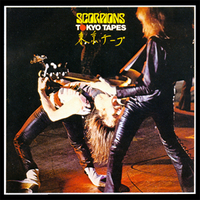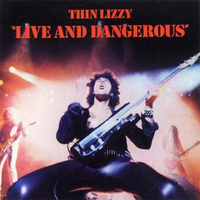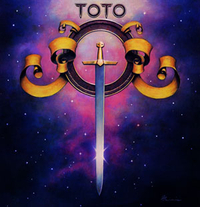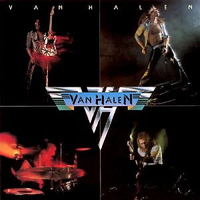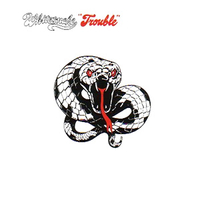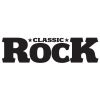In 1978 Space Invaders launched and serial killer David "Son Of Sam" Berkowitz was convicted of murder in New York.
In The UK the first test tube baby was born, the Garfield comic launched in US newspapers, Sweden became the first nation to ban ozone-damaging aerosol sprays, and the oil tanker Amoco Cadiz ran aground on France's Brittany coast, spilling oil in a slick 18 miles wide and 80 miles long.
In music, Chicago guitarist Terry Kath died after shooting himself in the head, The Who played their last show with Keith Moon, Grace Slick and Jefferson Starship parted ways after a show in Hamburg, Germany in which she'd drunkenly abused the crowd, and Def Leppard's Rick Allen joined the band at the age of just 15.
These are the 20 best albums of 1977.

Black Sabbath - Never Say Die!
Despite a tangible pre-split lethargy hanging over proceedings, Ozzy’s final Black Sabbath album certainly had its moments.
With Tony Iommi immersing himself yet further in the experimental complexity that characterised 1975’s Sabotage, Don Airey’s keyboards were allowed greater resonance, but Ozzy (who’d already briefly quit in 77) showed his dismay with a lacklustre performance.
1978 saw Blondie transformed from Lower East Side also-rans to international pop phenomena.
Parallel Lines’ effortless alliance of swagger, class and self-assurance rendered them entirely irresistible. Mike Chapman’s production, Chris Stein’s melodies and Debbie Harry’s divinity all helped, too.
With a prodigious talent, famously ‘discovered’ by Pink Floyd’s David Gilmour, and an entirely unique mode of performance, Kate Bush entranced, perplexed and astounded in equal measure.
High drama, pre-Raphaelite grand gestures and Gothic romance all find cohesion in the extraordinary material of The Kick Inside, an album that simply cannot be categorised.
Combining an art-rock sensibility with the hook-laden new wave nous of the ubiquitous Blondie, Car-in-chief Ric Ocasek crafted this timeless benchmark of slick, radio-friendly AOR pop.
Accompanying single My Best Friend’s Girl went top five, but additional FM staples (Just What I Needed, Good Times Roll) characterise an assured debut of rare, enduring class.
The Clash - Give ’Em Enough Rope
Received wisdom informs us that, due to in large part to an unsympathetic Sandy Pearlman production job, The Clash’s second album is a crushing disappointment.
Well, consider the rip-roaring, fists-aloft crescendos of Tommy Gun, unrestrained, incendiary passion of English Civil War, heartfelt, tower block pathos of Mick Jones’s Stay Free and think again.
Still the finest example of the band’s singular oeuvre, Dire Straits’ eponymous debut offered respite from the ubiquitous strains of disco, punk and Travolta.
Mark Knopfler’s dry, laconic delivery, Dylan-inflected lyricism, blues-based lightness of touch and delicate knack for coaxing raw passion from a Stratocaster brought atmosphere to countless provincial wine bars, and Sultans Of Swing became inescapable.
Rather than present a total quantum leap forward from the amphetamine-paced, modernist mediocrity of difficult second album This Is The Modern World, All Mod Cons seems to chronicle The Jam’s progress from cannon fodder to true contenders.
Billy Hunt was business as usual, but by climactic closer Down In The Tube Station At Midnight Paul Weller nailed his ultimate form.
Having gained notoriety as the album that saw Judas Priest unsuccessfully sued for driving a young fan to suicide (it was alleged that messages of encouragement were cunningly embedded in Better By You, Better By Me), Stained Class is often undervalued.
But with its morbid brutality and seismic power it sowed strong death metal seeds.
An epic in every respect, where the former Ted Nugent vocalist teamed up with musical theatre veteran Jim Steinman to create a grandiose rock opera.
Based around the vastly overinflated melodrama of its title track, Bat Out Of Hell was high camp pomp incarnate, but thanks to strong melodies and mainstream appeal, swiftly captured the imagination.
With Lynyrd Skynyrd on enforced post-aircrash hiatus, Molly Hatchet leapt into the southern boogie breech.
With a three-pronged guitar assault, Danny Joe Brown’s impassioned, whiskey-ravaged vocal and an appropriately hard-driving production from Cheap Trick/Ted Nugent board-jockey Tom Werman, it features guitar duels as savage as you’d expect from a band named after 17th century Salem’s most notorious lover-decapitating strumpet.
The Police - Outlandos D’Amour
Combining the sparse, clean minimalism of Andy Summers’ signature guitar, Sting’s crystal-shattering, expressive vocal and the en vogue reggae rhythms of Stewart Copeland, The Police boasted an unmistakeable sound and chemistry that entranced a generation.
Lead single Roxanne had flopped in April, but by Outlandos D’Amour’s November release it had developed into an evergreen airwave staple.
The Ramones’ first album without Tommy behind the kit marked their initial foray into throttling back in pursuit of mainstream acceptance. Johnny even ditches the distortion for both Don’t Come Close and their misguided side-swipe at The Searchers’ Needles & Pins.
It’s when they play to their true strengths (I Wanna Be Sedated, Go Mental) that they shine brightest.
Arguably the final instalment in the Rolling Stones’ unbroken series of truly essential recordings, Some Girls found a beleaguered old guard stoically refusing to flinch in the face of a punk and disco onslaught. Richards returned to the party after his ’77 drug bust in Toronto, and Jagger characteristically elected to join anything that he couldn’t beat.
As a consequence, Miss You’s iconic, Chic-alike bass-line and Respectable’s surly thrash ruled the nation’s airwaves.
As the final hurrah of Rush’s more ambitious prog rock era, where the extensive, science fiction epics of paradiddling moustache monster Neil Peart held sway, Hemispheres is not to be taken lightly.
Geddy Lee’s soaring vocals gave a welcome break from punk, and Rush managed to flourish where others floundered.
In an era where everybody and their drummer claimed to be ‘big in Japan’, the Scorpions actually were. Consequently, they elected to record this double live set, their last with guitarist Uli Jon Roth, in the Land of the Rising Sun.
Added dynamism and familiarity refined studio favourites so effectively that Tokyo Tapes finally established the Scorpions stateside.
Styx continued to establish their reputation as a versatile band for all seasons with Pieces Of Eight. With meticulously constructed cerebral rock, it was rich in both melody and power, and delivered the requisite gravitas demanded of pomp rock’s highest brow exponents.
But the astounding harmonic brilliance of Blue Collar Man and Renegade meant that Styx were equally at home in the US charts.
Thin Lizzy - Live And Dangerous
With legs akimbo machismo, and shooting sparks of triumphant dual-guitar artillery, Thin Lizzy’s live classic was the perfect vehicle for the salacious smoulder of the ultimate swordsman.
In ‘78 Phil Lynott bestrode the rock scene like a leather-trousered, snake-hipped colossus. With his danger-laced, seductive swagger and twinkle-eyed, bad boy demeanour, he enjoyed a broad appeal. This was a party that everyone wanted to join.
The airbrushed soft rockers had only been together for about five minutes when they recorded their eponymous debut, but that didn’t stop first single Hold The Line charting strongly on both sides of the Atlantic, while notching up a cool million sales in the process.
Toto defined the surgical slickness that would subsequently come to full fruition in ‘82’s Africa, from fourth album Toto IV.
In imminent danger of slumping into a punk-hastened early grave, hard rock needed a miracle and it found one on the Sunset Strip.
Flamboyant front-man David Lee Roth was the perfect antithesis to post-punk austerity; he crowed like the cock of the walk, sported leather flares, a chestwig and an apparent shame bypass. Add ‘shreddy Eddie’ to the mix and Van Halen's mega-stardom was not long coming.
After leaving Deep Purple, David Coverdale had taken a respectable stab at a solo career, but after a brace of largely ignored albums, he set up trade under the characteristically phallic moniker of Whitesnake.
Astonishingly, Trouble was Coverdale’s third album of the year, and his tenacity finally paid dividends when its Jon Lord-driven, bluesy, self-assurance furnished Whitesnake with their inaugural chart success.
- The 20 best rock albums of 1970
- The 20 best rock albums of 1971
- The 20 best rock albums of 1972
- The 20 best rock albums of 1973
- The 20 best rock albums of 1974
- The 20 best rock albums of 1975
- The 20 best rock albums of 1976
- The 20 best rock albums of 1977
Classic Rock Newsletter
Sign up below to get the latest from Classic Rock, plus exclusive special offers, direct to your inbox!
